Today’s capital markets demand reliable and valid financial information, but the current vehicles of exchange for private company data do not meet this need. Without a way to confirm the source and authenticity of audit reports and financial statements, third-party users that rely on this information for lending and investing decisions cannot feel confident in the information they receive. The occurrence of fraud has only further increased the focus on the accuracy of information.
There are three key marketplace trends causing this demand, including:
Demand For Authenticated Information
The advancement of technology has made it easier to electronically alter information, giving private companies the opportunity to make changes for their financial gain. PDFs and other editable documents that are used to share information can be easily copied or manipulated.
Due to credibility concerns, banks and other third parties are turning to information they are receiving from tax returns from the IRS to make lending decisions although better information is available through the audited financial statements.
There are a few different ways financial fraud is occurring:
- Management produces fictitious audit report and financial statements using an existing CPA firms’ letterhead and report language.
- Management alters information in a CPA firm-audited financial statement.
- Management creates a fictitious accounting firm or uses a firm that is not properly licensed.
"The CPA issues the report on the financial statements that he audited, not the one the client prepared yesterday. Then those go to the bank and the bank thinks those are the original audit."
Robert R. Harris
CPA/CFF, FCPA, CGMA
Forensic Accounting Expert
Former AICPA Chairman

Related videos
Digital Transformation of Financial Services
The transformation from manual, paper-based processes to electronic data has impacted many financial services areas, from accounting services, banking and wealth management, to payments and more. Cloud-based platforms have provided new ways to manage financial data, and brought real-time access to information.
While the digitization of documents has increased the ease and speed of accessing information, the lack of controls has created more uncertainty about the source and integrity of the data. The vehicles of exchange and communication surrounding this information need to be more sophisticated to address these challenges and must be designed to keep pace with technology advancements.
Compliance for Private Companies
The regulatory and compliance environment has become far more complex for private businesses, their lenders and investors, and CPA firms servicing them.
Two examples include:
- National Credit Union Administration policy for audit report submission, which impacts all federally insured credit unions and mandates direct submission of reports by the external auditing firm. Designed to reduce the potential risk of manipulation of information or fraud, the policy is designed to verify the authenticity of information submitted.
- The Dodd-Frank Custody Rule, which requires private equity firms with more than $150 million under management to follow SEC independence rules. These SEC independence rules prohibit a CPA from assisting in the preparation of a client’s financial statements.
RIVIO enables firms and businesses to comply with these policies in a secure manner that preserves a CPA firm’s independence in the process.
"The number and size and impact ability of regulation of smaller businesses is getting bigger and bigger and bigger. Without having the proper grounded financial information, they won’t be properly covered."
Rick Richardson
CPA/CITP, CGMA
Managing Partner
Richardson Media & Technologies









